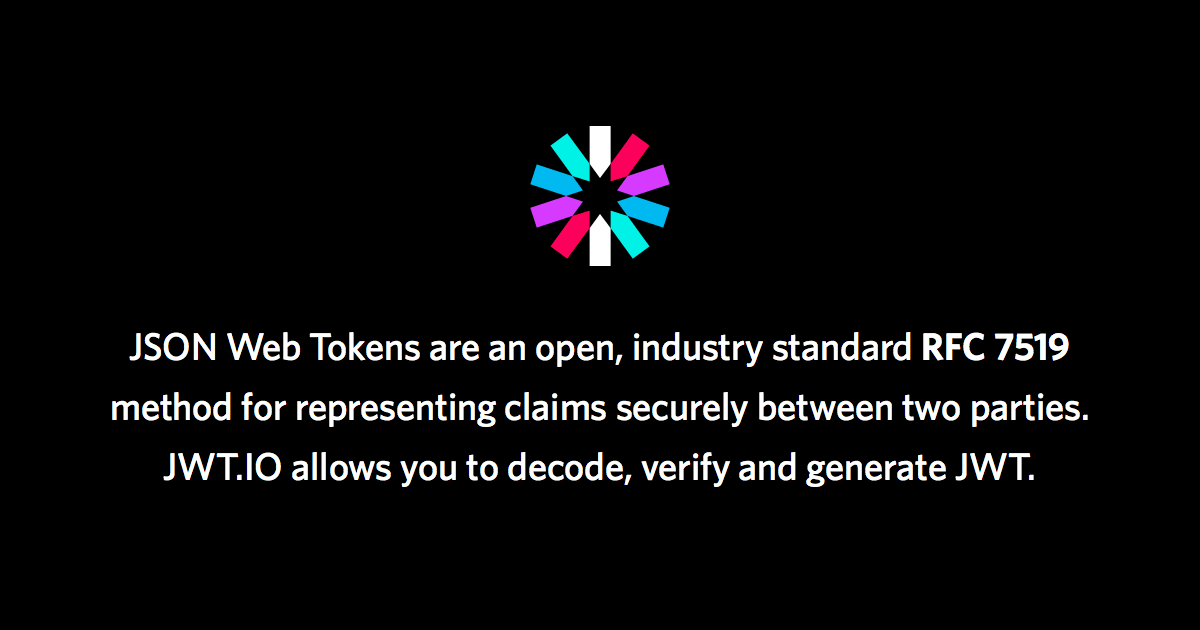# Introduction to JSON Web Tokens

## Metadata
- Author: [[jwt.io]]
- Full Title: Introduction to JSON Web Tokens
- Category: #articles
- Summary: JSON Web Tokens (JWT) is a compact and self-contained open standard for securely transmitting information between parties as a JSON object, which can be verified and trusted due to its digital signature. The JWT structure consists of three parts: header, payload, and signature. JWTs are useful for authorization and securely transmitting information between parties. JWTs are also smaller and more easily processed than other token types, making them a good choice for passing in HTML and HTTP environments.
- URL: https://www.jwt.io/introduction#difference-decoding-encoding-jwt
## Highlights
- JWTs can be signed using a secret (with the **HMAC** algorithm) or a public/private key pair using **RSA** or **ECDSA**. ([View Highlight](https://read.readwise.io/read/01k31e0qzzcbjkwf4k3k7rn0na))
- Although JWTs can be encrypted to also provide secrecy between parties, we will focus on *signed* tokens. Signed tokens can verify the *integrity* of the claims contained within it, while encrypted tokens *hide* those claims from other parties. ([View Highlight](https://read.readwise.io/read/01k31e19t61c2d6y8e8p53aw70))